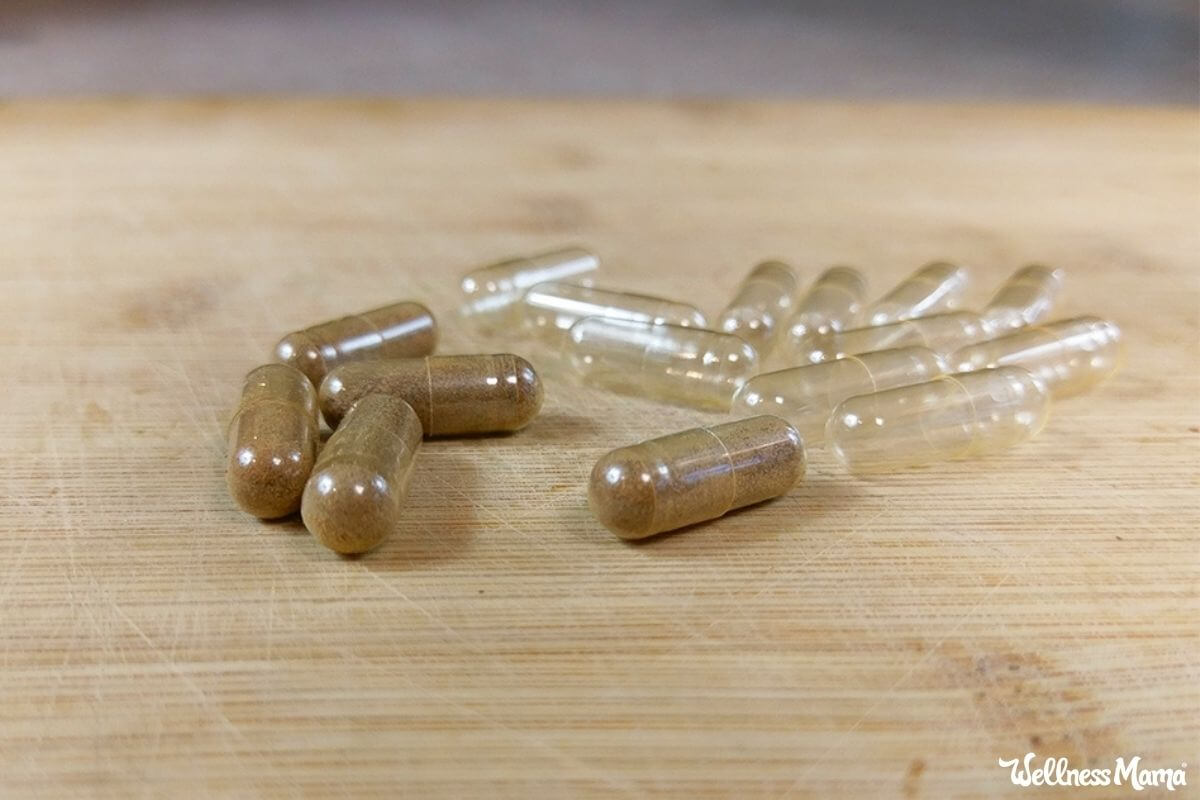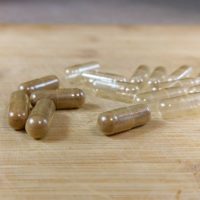Liver may be a nutrition-packed powerhouse, but for many this offal is, well… awful tasting. While I do love some liver and onions with bacon (because, hello, bacon!), these liver capsules are a virtually tasteless way to get your liver on.
Should We Eat Liver?
So why would we want to eat liver? Isn’t it the body’s filter that stores toxins?? The liver does act as a filter of sorts, processing, sorting and converting things. However, it doesn’t store them per se. If the whole body is overloaded with toxins, then the liver will be too.
It’s important to source clean fat from pastured animals since fat is a common place for toxin storage. Clean liver from a healthy, grass-fed animal though is another story.
Our family passes on the confined, grain-fed animals whenever possible, instead opting for grass fed or pasture raised.
Learn more about why I choose to include liver and organ meats in our meal plan in this post.
Liver Nutrition & Benefits
Gram for gram liver is one of the most nutrient-dense foods on the planet, if it’s from the right source. According to a 2010 article in Nutrition Journal, grass-fed beef has more nutrients. You’ll also find a higher ratio of anti-inflammatory omega-3 fats.
Even better, researcher and dentist Weston A. Price reported it has an “anti-fatigue” factor. Liver naturally contains iron (although would need to eat a large amount of liver to get your daily iron intake). It also is high in B12 and vitamin A. You’ll also find vitamin K, copper, folate, and CoQ10. These nutrients work together to provide lasting energy.
Beef liver in particular has high amounts of vitamin A which (among other things), which helps make for glowing skin. A 1981 study in The International Journal of Dermatology took a look at nutrition for skin. Researchers found that while lower doses of vitamin A were ineffective, 300,000 IU daily for women and 400,000 to 500,000 IU for men helped clear up even severe acne.
Keep in mind this study used the synthetic form, while natural preformed vitamin A from liver will absorb better.
According to a 2009 report in Dermato Endocrinology, vitamin A also helps:
- reduce oily pores
- improve wound healing
- reduce inflammation
Liver For Hair Growth
Beef and chicken liver are also high in vitamin B3 (niacin). Along with other nutrients and B vitamins, niacin makes for healthier hair.
A 2015 study in Dermatology Research and Practice found omega-3 fatty acids have a big impact on hair. These healthy fats reduce hair loss and increase hair fullness. Vitamin A regulates sebum in hair glands, thickens hair, and keeps hair follicles healthy.
Iron is also necessary for a gorgeous head of hair (which liver of course has!).
The Best Way to Eat Liver
Liver pate and liver and onions are a great way to get more liver in. I also like to add a little to ground beef when I’m making meals. Traditional cultures ate raw liver, so many natural health advocates encourage eating raw liver. Either way, you’ll still get plenty of benefits!
Liver capsules though are an easy, tasteless way to get the job done. Making them is much more economical than buying them.
Supplies to Make Liver Capsules
Making liver capsules is easy, but it does require a few supplies. Ideally, you’ll need a dehydrator, food processor or coffee grinder, and a capsule machine.
If you don’t have a dehydrator the oven’s lowest setting can also work, the liver will no longer be raw though. Some have reported propping the oven door open with a wooden spoon to cool the temp down a little. Heating up the house for 24 hours like this isn’t so fun when it’s 90 degrees out though!
- Here’s the dehydrator I use and recommend.
- You can get a pill encapsulator machine here.
- Buy natural gelatin capsules here.
No Time to Make it?
Investing in your own encapsulating supplies is saves a lot of money if you plan to take liver this way for the long run, but if this isn’t your thing or you are short on time, here’s a good brand for pastured beef liver capsules.
How to Make Liver Capsules
Equipment
Materials
- Liver – can use beef chicken, lamb (any amount)
Instructions
- Rinse the liver well under cool running water.
- Put defrosted liver in a food processor or blender, and blend until pureed. If your liver comes already thinly sliced, then you can also just use it as is.
- Cut unbleached parchment paper to fit the dehydrator or baking trays. Pour or lay out the liver on the trays in even layers.
- Dehydrate at 105° F/41° C for 24 hours. Keeping the liver at a low temperature allows it to remain in its raw state. Most ovens only go down to 170 degrees which will work, but the liver will no longer be raw.
- When the liver is completely dry, it should snap into pieces easily. If it still bends it needs more time to dehydrate.
- Put the liver back in the food processor or blender and pulverize it into a fine powder. You can also use a coffee grinder but this requires processing more batches.
- Encapsulate the liver powder in the encapsulation machine according to its directions. If you don’t have a machine you can also scoop and pack the powder into the capsules. The machine makes this much easier though!
- Store in a mason jar in a cool, dry place.
Notes
How Many Liver Capsules Should I Take?
It’s generally recommended to eat between 3 and 8 ounces of liver per week. That’s .4 to 1.1 ounces a day. This formula helps determine how many capsules you need.
- Pounds of liver started with x 16 (ounces per pound) = total ounces
- Total ounces ÷ ounces desired = number of days capsules will last
- Number of capsules ÷ number of days capsules will last = number of pills per day
For example, I started with 1.25 pounds of liver.
- 1.25 (pounds of liver) x 16 (ounces per pound) = 20 ounces
- 20 ounces (total ounces) ÷ 1 (ounces desired) = 20 (number of days capsules will last)
- 100 (number of capsules) ÷ 20 (number of days capsules will last) = 5 (number of pills per day)
This article was medically reviewed by Dr. Scott Soerries, MD, Family Physician and Medical Director of SteadyMD. As always, this is not personal medical advice and we recommend that you talk with your doctor.
How do you feel about liver? Would you try liver capsules instead?





Leave a Reply